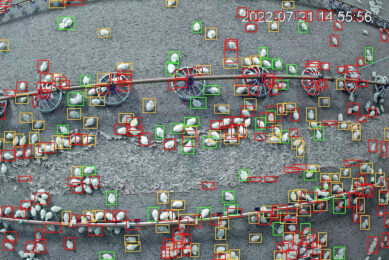Fighting disease with big data

Poultry and pig farmers are failing to make the most of digitalisation because they are not joining up big data sets, which could help them make early interventions to mitigate diseases or even predict them.
While the advent of precision farming is producing huge amounts of data, the lack of interoperability between systems is holding back the agricultural sector.
Data not talking to each other
European veterinary specialist Dr Carlos Pineiro said the poultry sector had very sophisticated systems but often the data didn’t talk to each other, which prevented full analysis, monitoring and prediction from taking place.
Also read: Data needs to be applicable
EU states to collaborate on interoperability
As part of its study into fighting disease with big data, the ProHealth project has produced a policy brief for the European Commission, which calls on the EU and member states to collaborate to provide an appropriate framework for ensuring interoperability.
The brief calls on policy makers, industry professionals and farmers to promote the development and on-farm use of digital tools and sensors to monitor the barn environment. Interventions can include adjustments to rearing environment, early treatment of the first symptoms and elimination of stress factors.
Can big data lead to early vet treatment
Questioned as to whether the advent of big data could lead to early veterinary treatment that might not be necessary due an increase in medications Dr Pineiro argued that training would be key and that fine-tuning may be necessary.
“For example, a farmer could review his herd or flock 2 or 3 times a day rather than once and medicate individually rather than as a group.”













